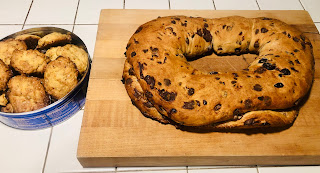Many today speak as if the United States has just recently become diverse. The founders knew otherwise and attempted to construct a limited government that would leave room for (to use historian David Hackett Fischer's term) different folkways while providing enough unity to protect against foreign attack.A neighbor is much enamored of Texas secession talk. I get it, but I think he's willfully blind to the issue of defense.
The diversity I wish we'd pursue
Mind control
Westerners have made a categorical imperative out of Mrs. Jellyby’s comically flawed humanitarianism/“do-gooderism” unto a distant other, while one’s own are neglected. In this moral climate, the piety required to love one’s community and the fortitude required to defend it become vices.The novel has since been labeled racist and colonialist, of course, with the result that its publishers did all in their power to squelch sales. Used copies in English translation therefore start at several hundred dollars for a paperback and shoot up several thousand dollars for a hardcover.A French copy was a little more affordable and was matched by a cheap Audiobook version, also in the original French. If I listen while reading along, the gist may get through. My rudimentary French has been improved by reading science fiction novels with which I'm already familiar in English. It works OK as long as the style is fairly straightforward, as science fiction tends to be.
Another Feast
A Chicken-Killing Day
My wife’s chicken population was reduced by two this afternoon, as she has finally conceded the necessity of eating some of the monsters. Whilst she thought of them as sort-of pets they were untouchable. Killing a chicken is otherwise a trivial matter.
New Years Day should feature a roast chicken dinner. I’ll have to decide what to make alongside.
The Feast of St. Thomas of Becket
Unprepared for War
[O]ur moment has thrown up conflicts across the globe: Israel versus Hamas, Russians versus Ukrainians, or Chinese democrats versus the Communist Party. But these disparate battles are in fact part of one whole – a struggle to dominate the future.The new wider war includes attempts by great powers, notably China, to secure natural resources by securing alliances with authoritarian regimes around the world.... This de-facto alliance, a modern version of the World War Two “pact of steel”, is truly global in scope. It extends from Ukraine to the shutting off of the Red Sea by Yemen’s Houthis, and even Venezuelan plans to conquer much of oil-rich Guyana....The wider war pits on one side the revanchist powers – China, Russia, Islamist, Latin American and African countries – who feel they have been wronged by the West and liberal capitalism. On the other side are the West and non-European allies like Japan, South Korea and perhaps most importantly Modi-led India.
I wouldn't count too much on India, actually. If that's your 'most important' ally, you're in worse shape even than you think. India has been emphatically non-aligned since their inception, and at this point is closer to Russia.
The author is right, of course, that the US and the West are failing on all fronts in terms of military readiness. He even identifies them fairly succinctly. How do you fix them, though? The powers are all against it, and some of the problems -- like the collapse of faith in the West among the youth, or the need to rebuild American manufacturing almost from the ground up -- are generational.
The Proximate Cause
Vehicular Advice
Language drift
Restoration and new life
Dog joy
The High Feast of Christmas
The storm that blew in last night brought hard winds and rain, and knocked out the power on the mountain. Some poor lineman is doubtless having to spend his Christmas morning out in dreary weather. Here at the Hall there is warmth and fire. I made coffee over living flame.
Merry Christmas to all!








